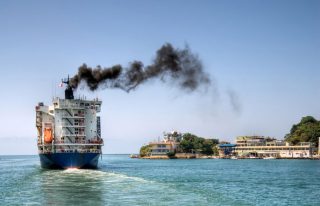Three New Members Join SEA\\LNG Coalition

Three new members have joined the multi-sector industry coalition SEA\\LNG which aims to accelerate the widespread adoption of liquefied natural gas (LNG) as a marine fuel.
Representing key aspects of the LNG value chain, international classification society Bureau Veritas, LNG solutions provider Clean Marine Energy, and Spanish natural gas utilities company Gas Natural Fenosa have joined SEA\\LNG to break down the barriers to LNG uptake and assure its vital role as a clean and economically viable alternative to traditional bunker fuels.
“We firmly believe that collaboration, demonstration and communication on key areas such as safety, regulation, emissions and the economic case are essential to providing the confidence and demand required for an effective and efficient global LNG value chain by 2020,” Peter Keller, SEA\\LNG Chairman and Executive Vice President, Tote said.
Keller added that with the addition of these members, the coalition is expanding its “knowledge and experience base, bringing us one step closer to achieving our vision.”
Bureau Veritas’ involvement across the entire LNG fuel chain includes the classification of LNG-fuelled vessels, including tankers, ferries and cruise ships, as well as LNG bunker vessels, and LNG plant and terminal certification. At the end of 2016, Bureau Veritas had 22 LNG-fuelled ships in class with a further 39 under construction.
“Bureau Veritas is committed to helping make LNG one of the preferred, and safe solutions for a clean shipping future, which is why it makes sense to work collectively with SEA\\LNG members to achieve this,” Philippe Donche Gay, President, Marine and Offshore, said.
The three new SEA\\LNG members join a growing band of organisations including ABS, Carnival Corporation & plc, DNV GL, Eagle LNG Partners, ENGIE, ENN Group, GE, GTT, JAX LNG, Keppel Gas Technology, Lloyd’s Register, Mitsubishi Corporation, NYK Line, Port of Rotterdam, Qatargas, Shell, Total, TOTE Inc., Toyota Tsusho Corporation, and Wärtsilä.
In late January, the coalition called for a collaborative approach to understanding the opportunities and tackling the associated commercial barriers to liquefied natural gas (LNG) in an effort to encourage its use as an alternative to traditional bunker fuels ahead of the global sulphur cap of 0.5% from January 2020.
HEADLINES
- Do shipping markets want Biden or Trump for the win?
- All 18 crew safe after fire on Japanese-owned tanker off Singapore
- Singapore launching $44m co-investment initiative for maritime tech start-ups
- Cosco debuts Global Shipping Industry Chain Cooperation Initiative
- US warns of more shipping sanctions
- China continues seaport consolidation as Dalian offer goes unconditional